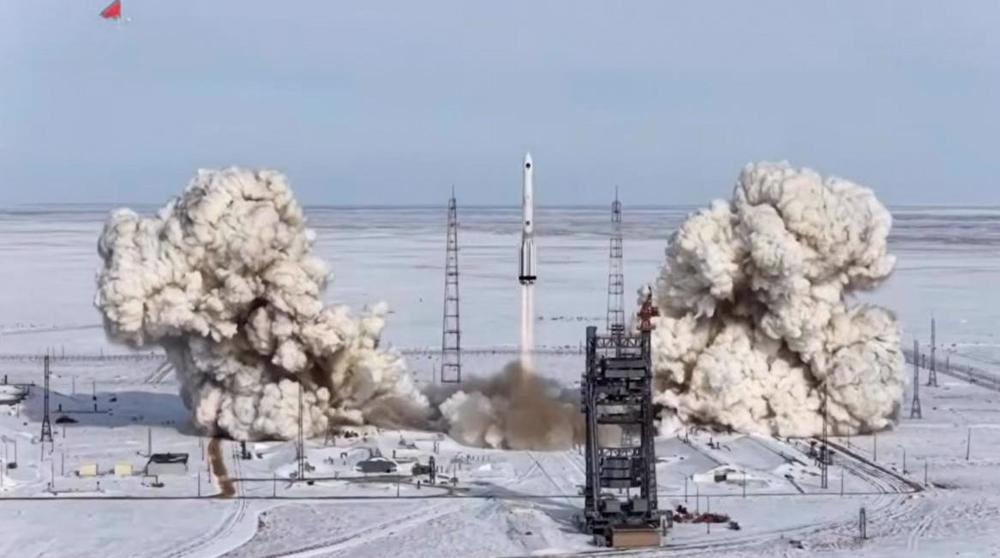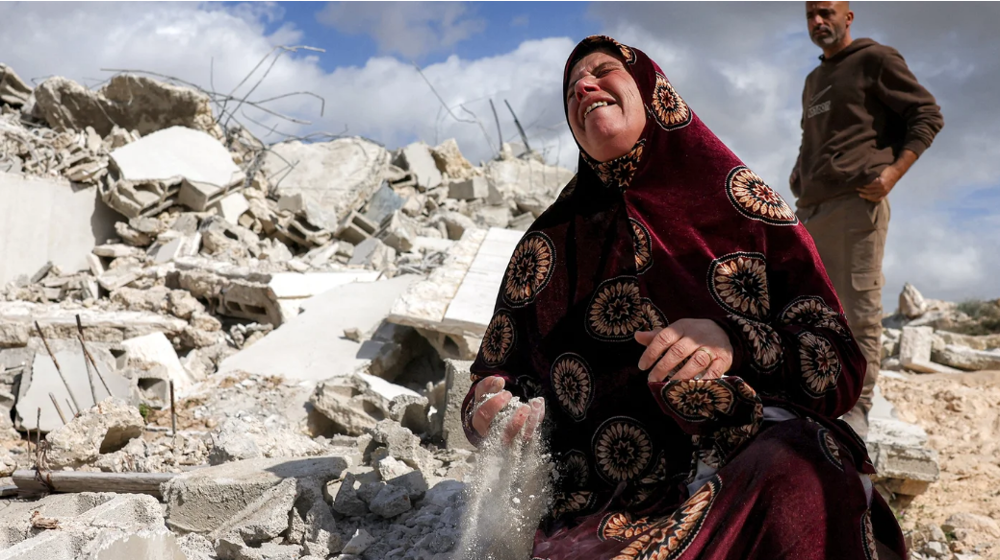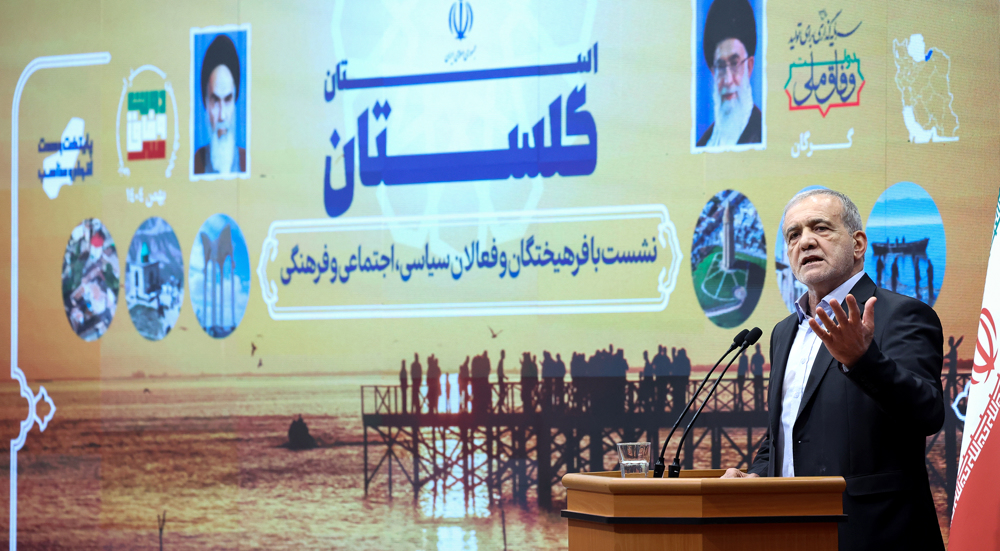Iran to definitely scale back more JCPOA commitments under current circumstances: Zarif
Foreign Minister Mohammad Javad Zarif says Iran is determined to go for the third stage of suspending its commitments under a 2015 multilateral nuclear deal if the European co-signatories keep failing to uphold their end of the bargain.
Speaking on the sidelines of a cabinet meeting in Tehran on Wednesday, Zarif complained that the European parties to the Iran deal —France, Britain and Germany — have failed to abide by their commitments, both those within the framework of the agreement itself and their obligation to respond to the consequences of America’s exit from the accord.
He pointed to a non-dollar direct payment channel designed by the Europeans to offset the American sanctions that have returned in place against Iran, saying the financial mechanism — known as INSTEX — is still in its preliminary stage and is yet to become operational.
“INSTEX should not be turned into a tool for carrying out US orders and [enable] them (Americans) to decide how this mechanism can function,” Zarif said. “INSTEX is a vehicle for Europe to fulfill its commitments after America’s pullout” from the nuclear deal, officially called the Joint Comprehensive Plan of Action (JCPOA).
The mechanism, he added, should guarantee that Iran would be able to sell its oil and collect the revenue.
Zarif further urged Europe to “allow itself the courage to act based on its commitments, not on the American demands.”
During the recent Joint Commission of the JCPOA, Tehran’s partners once again stressed their commitment to the nuclear deal, but Tehran needs to see how they put their words into action, the top Iranian diplomat added.
“Under current circumstances and if no action is taken (by the Europeans), we will definitely take the next step (in reducing commitments),” Zarif added.
Zarif went on to say that that the current wave of “tensions, chaos and problems are rooted in the US economic terrorism against Iran and the European countries’ failure to deliver on their promises, which is counted as complicity in economic terror.”
In May, Iran began reducing its commitment to the nuclear accord in stages, one year after the US abandoned the deal and re-imposed its harsh economic bans on the Islamic Republic — which are mainly aimed at the country’s energy sector.
Tehran’s commitment reductions do not amount to any violation of the deal and are in accordance with its legal rights under Articles 26 and 36 of the JCPOA. Iran says its retaliatory measures will be reversible as soon as Europe finds practical ways to shield Iranian economy from the US sanctions.
The Europeans have already missed a 60-deadline set by Tehran, promoting to Iran to go for the second phase of cutting its commitments on July 7, which marked the start of a second such deadline for them.
Bangladesh Nationalist Party secures victory in general election
VIDEO | British High Court rules against ban on Palestine Action Group
Tehran urges ‘serious’ revision in EU ‘unconstructive’ approaches
Hamas slams Israeli settlers’ ‘criminal aggression’ in West Bank
VIDEO | Press TV's news headlines
VIDEO | Iran launches 'Holy Qur'an Does Not Burn' campaign to restore mosques damaged in unrest
VIDEO | Ramadan amid the rubble: Gaza’s historic Al-Zawiya market defies odds
UN sounds alarm over US-generated energy crisis in Cuba
















 This makes it easy to access the Press TV website
This makes it easy to access the Press TV website